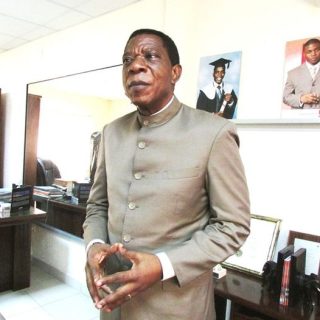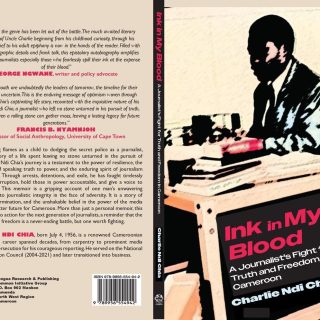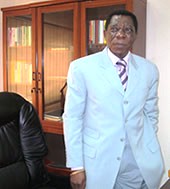Cameroon To Pay ACTIS 87 Billion FCFA To Take Over Its 51 % Shares In ENEO, While ACTIS Is Leaving Behind ENEO With A Colossal Debt Of 800 Billion FCFA
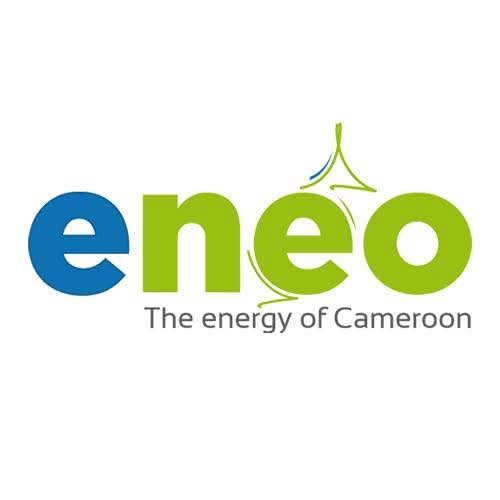
The 800 Billion FCFA Debt Include 500 Billion FCFA Owed To Contractors, Including Suppliers. Part of Debt Is Money That ENEO, Under The Management Of ACTIS, Borrowed From Banks. Worse Still, ENEO Cameroon Loses 60 Billion FCFA A Month To Fraud. The Mission Of SONEL That Was Created In 1974, And Became AES SONEL In 2001, and ENEO Cameroon In 2014. The Mission Had Since Changed. Water And Energy Minister Admits That The Task Ahead For ENEO Will Not Be Easy.

After over two years of a difficult negotiation, the Cameroon Government and the British investment company, ACTIS, a few days ago finally signed an agreement for the State of Cameroon to pay to ACTIS the sum of 78 billion francs CFA, to take over its 51 % shares in Energy Of Cameroon (ENEO Cameroon).The signing ceremony took place at the Ministry of Finance in the nation’s capital, Yaounde, precisely on Wednesday, November 19, 2025.
The Director of Electricity in the Ministry of Water and Energy, Mme Marthe Essoumba, disclosed over Info Tv in Yaounde on Sunday, November 23, 2025, that ACTIS initially demanded for more than double the amount of 78 billion francs CFA for the 51 % shares, but that that it was during the long negotiation that the amount finally dropped to 78 billion francs CFA.
Worthy of note that the Minister of Finance, Louis Paul Motaze, was Cameroon’s chief negotiator, in the negotiation for the State of Cameroon to acquire the 51% shares of ACTIS in ENEO. The Minister of Water and Energy, Gaston Eloiundou Essomba, as head of the technical ministry of ENEO Cameroon, was also highly involved. Also worth noting that ACTIS has since 2014 been the majority shareholder (51%) in the lone company authorized to distribute or commercialized energy (electricity) in the country, ENEO Cameroon.
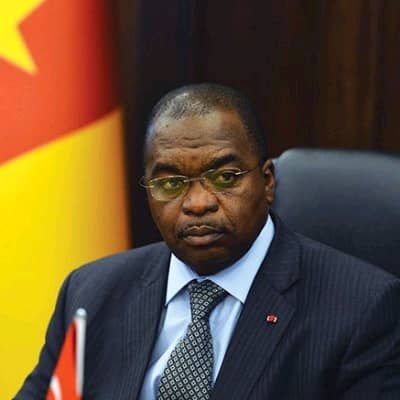
78 Billion FCFA To Be Paid In Three Months
Meanwhile, many Cameroonians are celebrating that with the signing of the agreement with ACTIS, the country has regained its sovereignty over the electricity sector in the country. But it should be noted that it is practically not yet a done deal, for the State of Cameroon is still to pay the 78 billion francs CFA to ACTIS, to effectively takeover the 51 % shares in ENEO. The State of Cameroon has taken an engagement to pay the 78 billion francs CFA to ACTIS, in three months. It is only after this money would have been paid, that the State will effectively takeover the 51 % shares of ENEO. It should also be noted that the State of Cameroon, has in line with the concession agreement that was signed in 2001, all along owned 44 % of the shares of the ENEO Cameroon. The acquisition of the 51 % shares from ACTIS, puts the total share of the State of Cameroon in ENEO, at 95 % .The other 5 % shares of ENEO Cameroon, belong to employees of the company.
ENEO Has A Debt Of 800 Billion FCFA
It should be noted that it was in fact ACTIS that a few years back, indicated that it wanted to leave ENEO Cameroon, because of the numerous problems, especially financial problems, that, the electricity company has been facing due mainly to huge amounts of money being owed the company in accumulated unpaid bills especially by the Government, State institutions public establishments, as well as Sate owned companies. The Government finally accepted that ACTIS could leave, and expressed the readiness by the State of Cameroon to take over the 51 % shares of the British investment company.
But the negotiation between the Government (on behalf of the State of Cameroon) and ACTIS, was not easy, and dragged on for over two years. The main problem was the huge debt that ENEO Cameroon owes. By the end of 2024, the total debt of ENEO was 800 billion francs CFA, with 500 billion francs CFA being money owed to contractors, including suppliers. The main dispute in the negotiation was, whether it should be ACTIS or the State of Cameroon, to take responsibility for the huge debt of ENEO Cameroon. For one thing, it is ACTIS that since 2014 was managing ENEO Cameroon. But ACTIS refused to take responsibility for the 800 billion francs CFA debt. At one point during the negotiation, ACTIS took the matter to an international court in France. Suffice to say at the end of the day, the responsibility for the payment of the huge debt of 800 billion francs CFA owed by ENEO Cameroon, fell on State of Cameroon.
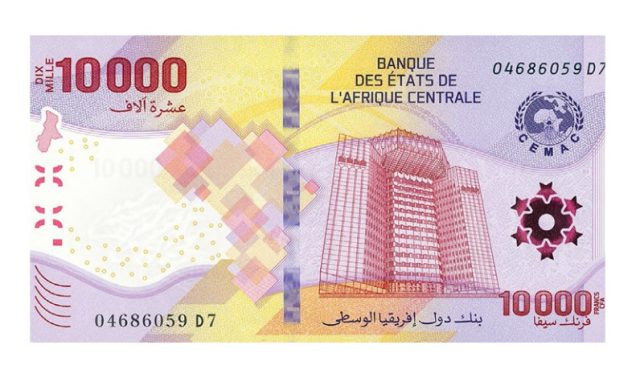
This is why there are Cameroonians that are blasting the terms of the agreement that was signed between Cameroon and ACTIS in Yaounde on November 19, 2025. The critics consider the agreement as very controversial. They cannot understand why the responsibility to pay the huge debt of 800 billion francs CFA owed by ENEO Cameroon, should fall on the State or Government of Cameroon, whereas the company was being management by ACTIS as majority shareholder. More so, Cameroon has to pay ACTIS 87 billion francs CFA to acquire the Group’s 51 % shares in ENEO Cameroon. It should be noted that the Cameroon Government was accompanied in the negotiation by the two consultancies (KPMS and Chazai Wamba), while ACTIS was accompanied by the powerful or much influential World Bank institution known as Financial Capital, and also by Amadagana & Partners.
Cameroon Is Neck Deep In Debts
800 billion francs CFA is quite a huge amount of debt to pay, especially for the Cameroon Government, considering that Cameroon is already a highly indebted country. Part of the 800 billion francs FCA owed local contractors, have come to add to the huge debts or huge amount of money that the Government has for long now owed local contractors. It should also be noted that part of the ENEO debt is money owed multinational companies that run gas power stations (electricity production companies) in the country, and that supply energy to ENEO, especially during dry seasons that hydroelectricity plants face problem of water shortage, and thus cannot operate in full capacity.
Fears That The Issue Of Unpaid Bills May Worsen

Meanwhile, there are people who instead think that, now that the State or Government is going to take over the entire management of ENEO Cameroon (Board of Directors and management team), many State institutions will not just think of paying electricity bills, and so the issue of unpaid bills may worsen. Things may get to a point where the Government will start using money from the State coffer in the name of subventions, to run the electricity distribution company, ENEO Cameroon. And there, the Government may start having problems again with the Breton Woods Institutions (World Bank and IMF), like happened in the past.
The Breton Woods Institutions were very critical of the Cameroon Government in the past, that it was taking money from the State coffer that should go for the development of the country, or for the improvement of the poor living conditions of the impoverished masses, to give as subventions to some State owned companies that were always in the re, and thus were more of drain pipes to the country’s financial resources. In fact, it was one of the reasons that the made the Breton Woods institutions to force the Cameroon Government to privatize almost all State owned companies in the early 2000s.
And so though it is good idea for Cameroon to take back its sovereignty in running the lone electricity distribution company in the country, there are however fears that with the State’s takeover of ENEO, things might get worst for the company, as regard the frequent failures to pay electricity bills by Government, State institutions, public establishments, State owned companies, and so on.
The Minister of Water and Energy, Gaston Eloundou Esssomba, says the State institutions, public establishments and State owned companies that are owing ENEO, will have to clear their accumulated bills. The minister has however admitted that things will not be easy for ENEO, but insists that: “From now, everybody (client of ENEO) will pay electricity bills. Councils and others will have to pay their bills”. It is however a matter of wait and see.
ENEO Losing 60 Billion Each Month

One of the other major problems that ENEO Cameroon has been facing is fraud. This is mainly done through illegal connection of electricity by quite a number of unscrupulous individuals across the country. Thus there are many persons that consume electricity without paying, or better still, they never receive any bills for their consumption of electricity, because their lines are illegally connected to ENEO installations. ENEO has also complained that some persons now manipulate the pre-paid electricity meters, and thus consume electricity without the meters recording it. In fact the Minister of Water and Energy, Gaston Eloundou Essomba, has disclosed that ENEO loses as much as 15 percent of the electricity that it distributes in a month, which in financial terms, he is says is 60 billion francs CFA. The minister says ENEO is thus losing an average of 60 billion francs CFA a month, to fraud. The minister says ENEO will have to step up the fight against illegal connection and the manipulation of pre- paid meters.
The Creation Of SONEL IN 1974
Meanwhile, the Cameroon Government, or better still, President Ahmadou Ahidjo, in 1974 created the national electricity company, SONEL. The State owned company (SONEL) was in charge of the generation or production, transportation and distribution of energy (electricity) in the country. This meant that SONEL was in charge of the production of electricity from hydroelectricity power stations, the transportation of the energy from the power stations to the towns and villages by high tension lines, and the distribution of the electricity to consumers or clients, through low tension lines.
In the Southern part of the country, power was mainly generated by the Songloulou and Edea Hydroelectricity Stations, both in the Sanaga Maritme Division of the Littoral Region. The Government unfortunately abandoned the Yoke Power Station in Muyuka Sub –division, Fako Division of the Southwest Region, which used to supply electricity in the days of West Cameroon. Over 90 % of energy that SONEL was distributing then in the Southern part of the country, or, what is termed Southern Grid, was from hydroelectricity power stations.
Meanwhile, following the rather controversial decision that was taken by the Breton Woods Institutions (World Bank and IMF), coupled with incessant pressure mounted on Cameroon to pull out of the private sector, by privatizing State owned companies, the Cameroon Government in the early 2000s auctioned almost all State owned companies, including SONEL, mostly to Western companies.
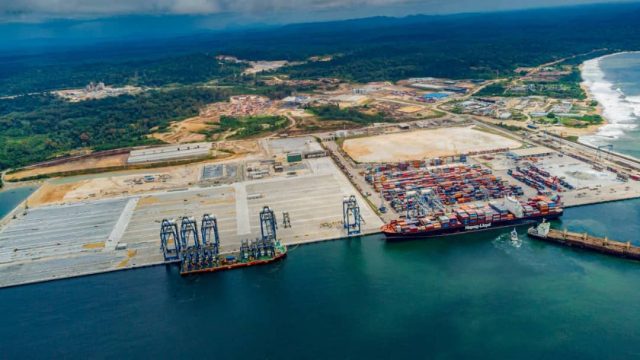
The Concession Deal – The Coming In Of AES Corporation In 2001
As regard SONEL, a public utility company, what the Cameroon Government did, was to bring in a private company to be a majority shareholder or strategic partner, in a concession agreement. A US company, AES Corporation, came in as the majority shareholder in SONEL, taking 51 % of the shares of the company. The State of Cameroon retained 44 % of the shares as minority shareholder. The remaining 5 % was supposed to go to the employees of the company. AES Corporation however took up the 5 %, with the understanding that the shares would be handed over to the employees, when they would organized themselves for that. The name of the company became known as AES SONEL. In the arrangement, the majority shareholder of the company, AES Corporation, was to appoint the General Manager of the AES SONEL, while the Cameroon Government designates the Board Chair. The management of the AES SONEL was in the hands of the majority shareholder. But the company continued with its mission of producing, transporting and distributing electrical energy.
From AES SONEL TO ENEO Cameroon
Meanwhile in 2014, AES Corporation of the United States decided to sell its 51 % shares in AES SONEL to a British investment company, ACTIS. It should be noted that up till 2014, the American company. AES Corporation, was still l sitting on the 5 % shares of AES SONEL that belonged to the employees of the company. AES Corporation had thus from 2001 to 2014 actually been in control of a total of 56 % shares of AES SONEL. That was actually what AES Corporation passed over to ACTIS, though it was made clear that 5 % of the shares belonged to the employees of the company.
With the departure of AES Corporation, the name, AES SONEL, could no longer hold. ACTIS Launched a competition in the country for names to be proposed. At the end of the competition, a jury selected the name, Energy of Cameroon, (ENEO Cameroon), as the new name to replace the name, AES SIONEL. Also, in a typical British fashion, ACTIS did not sit on the 5 % shares of the employees. Discussion was opened between the management of ENEO Cameroon, and the workers’ syndicates, and culminated in the handing over of the 5 % shares of the company to the employees.
Renationalization Of Electricity Sector!
Meanwhile, the Biya Government is brandishing the acquisition of 95 % shares of ENEO Cameroon, as the RENATIONALIZATION OF THE ELECTRICITY SECTOR IN CAMEROON. That is political propaganda. As aforementioned, ENEO today is only in charge of the distribution of energy. It is a truism that it is a State owned company, SONATREL, which is in charge of the transportation of energy. But then as aforementioned also, there are today a number of multinational companies in the energy production domain in Cameroon. So it is not right to claim that the Government has today renationalized the electricity sector, which is comprised of production, transportation and distribution.



